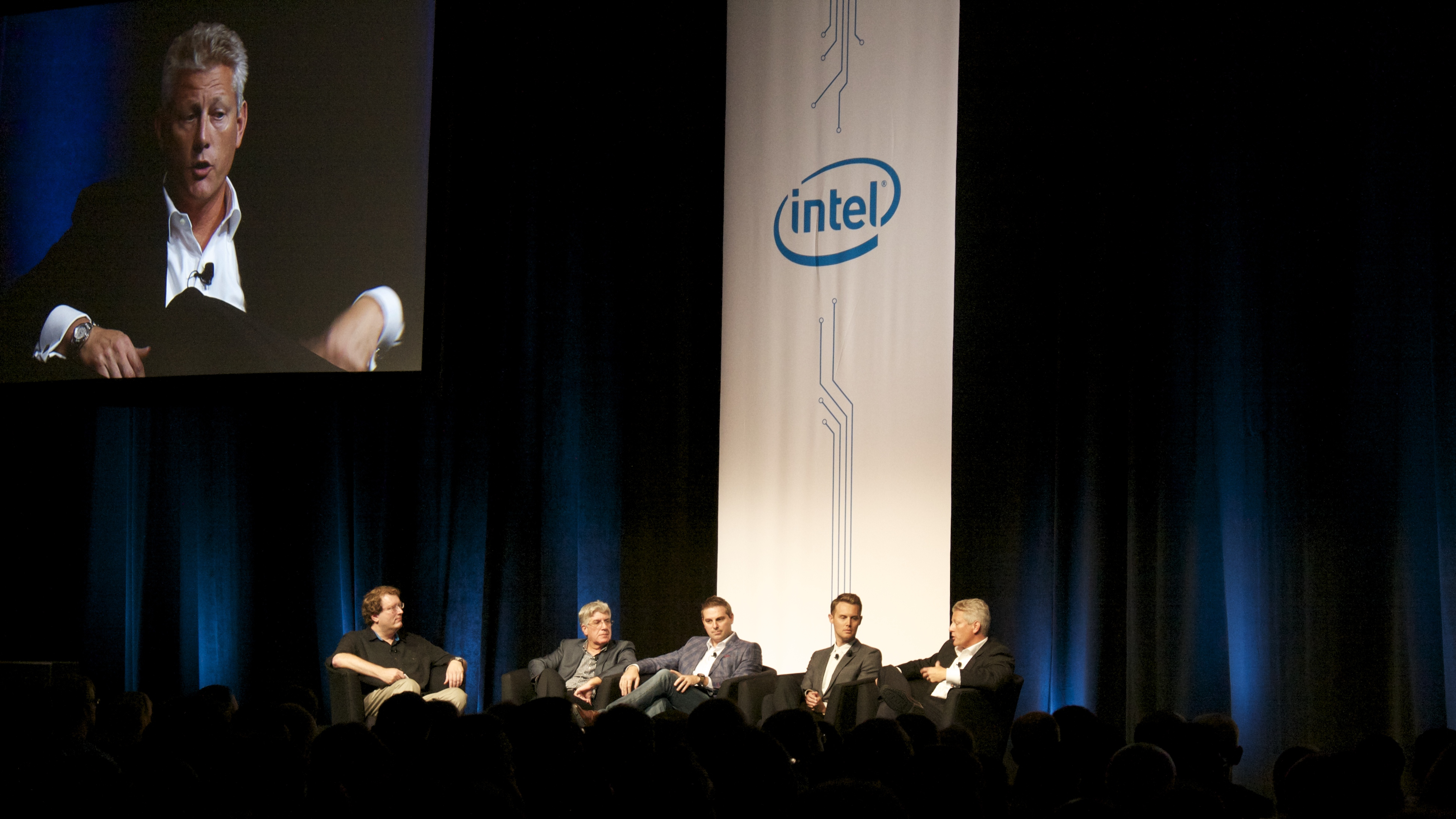Game developers have to start thinking differently, says Intel

This year's Intel Developer Forum has seen a pretty significant amount of time given over to talking about PC gamers and the hardware they're producing for that enthusiast market.
On the back of the release of its eight-core/sixteen thread desktop processors though they're also hoping that developers actually start to think more about multi-threading their game engines than just about straight clock speed.
Kirk Skaugen, Intel's Senior VP of its PC client group, called the PC 'the ultimate Darwinian device, transforming itself decade-after-decade.'
And when you think back to the first PC you ever had it'll probably have about as much to do with your current rig as the old pocket calculator you used to type 5138008 into back at school.
But where the hardware is iterating seemingly faster and faster, the software is simply not keeping up.
Software lagging behind hardware
When I've been testing the Core i7 5960X I've been blown away by it's raw, multi-threaded processing performance. It's frickin' lightning quick. What it doesn't do though is make your games run any faster than they would on a quad-core i5.
This is what prompted Skaugen to call out to the developers in the room – in two separate talks – to 'start thinking about threads, not just frequency.'
Sign up for breaking news, reviews, opinion, top tech deals, and more.
I asked Lisa Graff, Intel's VP of its Desktop Client group, about what they could do regarding the stagnation of multi-threaded game engines.
She had actually been out at PAX a couple of weeks previously launching Haswell E and talking with some of the big brains of PC games development.
'In their games they can take as much performance as we can possibly give them,' she explained. 'Using all the single-threaded performance, the cores, all that kind of stuff. Not all games can do that, no question about it, I think that's true.'
'I think especially these bigger game developers do,' she added. 'That will be an interesting trend for others to follow.'
Graff then is hoping getting the larger developers on board with creating properly multi-threaded engines will encourage smaller developers to do the same.
Not just about the cores
Thankfully though it's not just about Intel producing huge, hulking eight-core behemoths, or more affordable twelve-threaded processors, and then hoping the developers start taking advantage of the new PC hardware that's available. Microsoft too have a role to play.
The new DirectX 12 graphics API is all set to offer much easier paths to multi-threaded gaming.
I spoke to Chris Silva, Director of Marketing for Intel's Premium Notebooks, who's very encouraged about the way it's going.
'It used to be pretty difficult to do multi-threading,' he explained. 'It's been, what, ten years now we've been trying to drive multi-threading. The tools are a lot easier now, it's a lot easier to manage the different things going on in codes. DX12 is structured to allow easier segmentation of your code so that you can do multi-threading.'
Microsoft's DirectX 12 isn't going to be a cure-all panacea for multi-core woes however. Despite the new API being designed to be optimised for multi-threading, the games need to be coded by developers to actually take advantage.